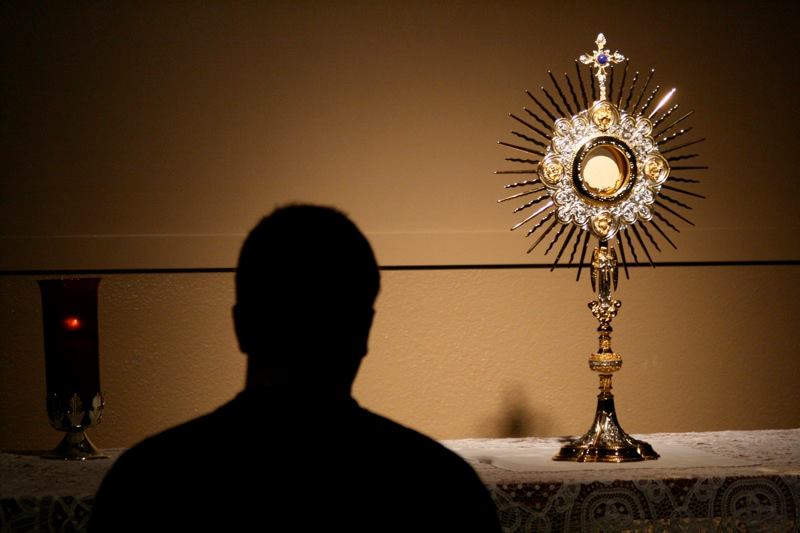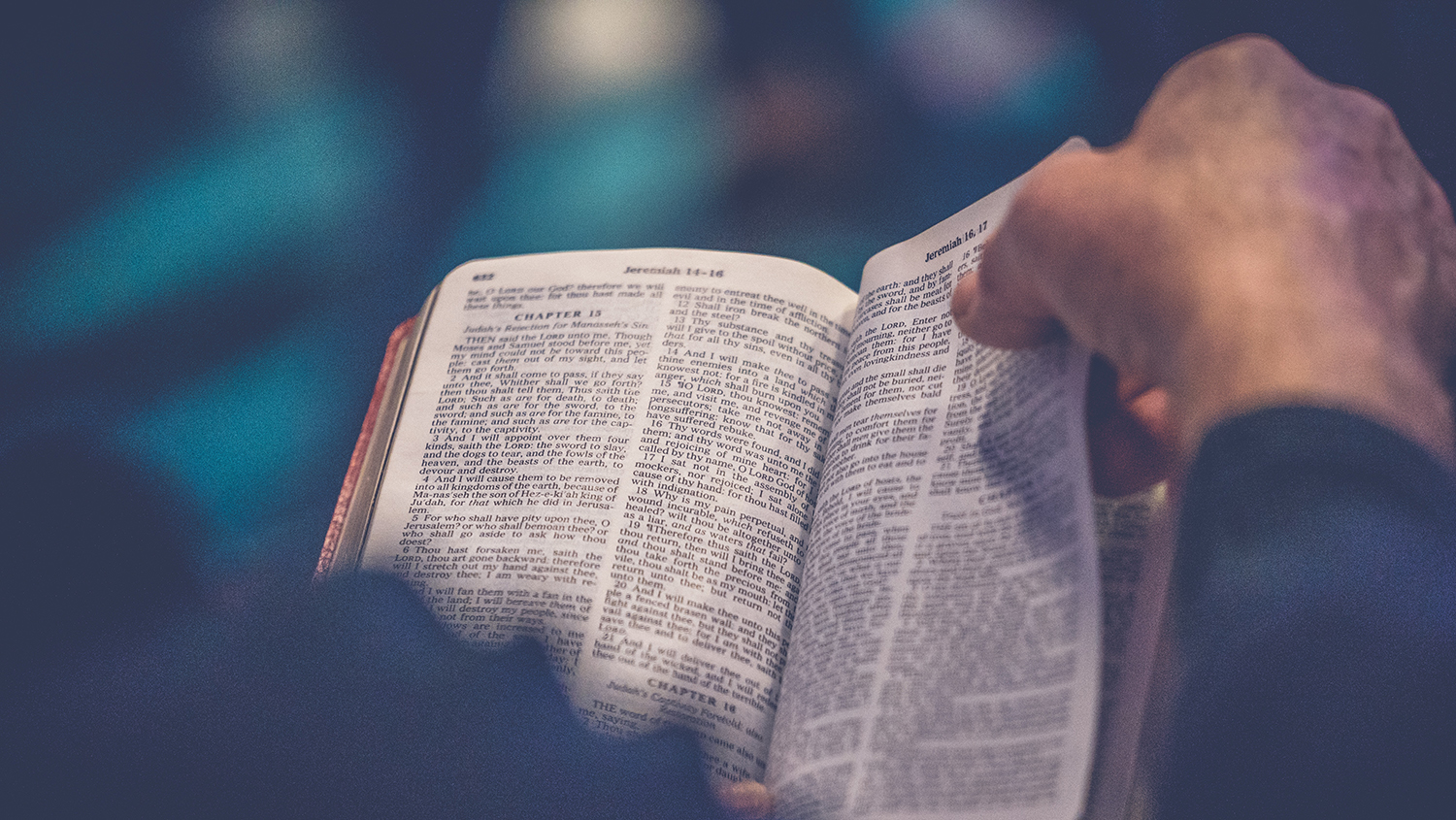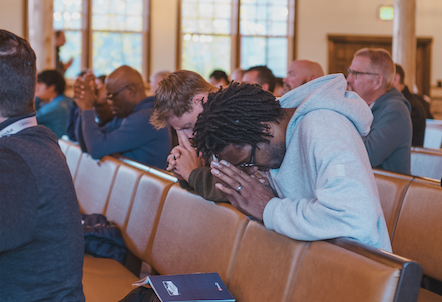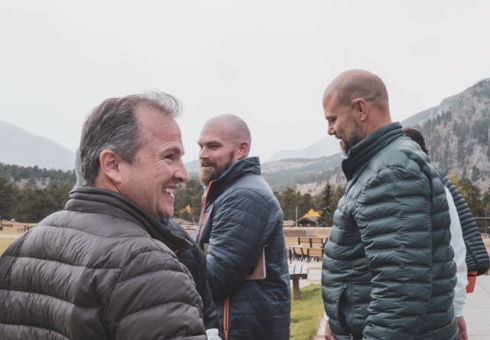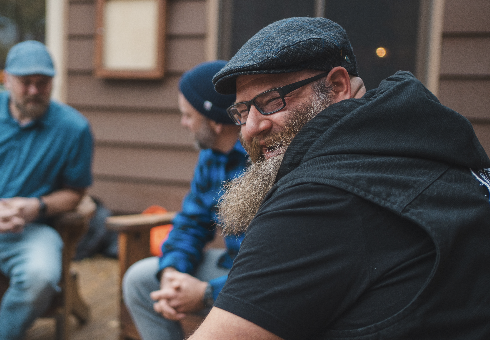What is Prayer?
Prayer is conversation with God.
And it’s not so unlike our normal human interactions and relationships.
It is through prayer that we enter into our relationship with God. Our spiritual guide for Exodus 90, Fr. Boniface Hicks, writes in Personal Prayer that vulnerability “is the key to the most fruitful prayer” and “the meeting point of God and man.”
We listen. We hear. We share. We ask. We dream.
Sometimes, we think that we need to overcome our humanity in order to pray better. For example, “If I didn’t have this headache? Or if I didn’t have all this stress from work? Or if I could just quiet down my mind, I would be able to pray better!” But this is not true. We pray just as we are, as human beings, and as men, amid all our responsibilities, concerns, and the messiness of our lives. To learn to pray, then, is not to overcome our humanity. To pray is to become more human, to become who we are as sons of our Father in heaven.
The foundation of prayer is silence, and silence is at odds with the distractions and freneticism of our postmodern times. Thus, we must tear ourselves away from the noise, so that we can sit still, listen, and share openly with God. As Cardinal Sarah writes in The Power of Silence, “This awakening is necessarily brutal.” It is for this reason that the ascetic practices of Exodus 90 are so important and helpful. They remove us from the noise and busyness of our time, which are so unlike times past, so that we can grow back into our capacity for silence.
The time you spend in prayer during Exodus 90 is the most important part of the journey. Your daily Scripture passage and reflection from Exodus have been crafted to help you start your conversation with the Lord each day. We offer them for men like you every day of the year, not just during Exodus 90, and we hope that we become your trusted guide for spiritual formation throughout the year.
Exodus content is not like a Bible Study; it’s a path to prayer. If a single verse or word stands out, feel free to stay with it in prayer for as long as you like, even for many days or weeks.
During Exodus 90, we will strive for an hour of daily prayer, and within that hour, we encourage you to spend at least twenty minutes in silent prayer, listening and sharing openly with the Lord. Amid the responsibilities of your life and vocation, an hour of prayer may not be possible each day. Do not become discouraged, feel shame, or give up on prayer because you cannot hit an hour. Do the best you can with the time that you have. If you need to start small with a few minutes and build up your time over the the first few weeks, we encourage you to do so. From experience, most men find it easier to pray early in the morning or late at night, and it is most likely to happen if we schedule our prayer time and make it a priority in our plan of life each day. The Disciplines Tab of the Exodus app is meant to help you stay accountable to prayer.
As intimidated as you may be as you begin to pray, brother, you can do it. The more you practice prayer, the more familiar it will become for you and the more confidence you will gain, like so many other things in our lives. But, we must persevere no matter the challenges we face because, apart from a life of prayer, we quickly get lost and forget who we are, like a lost child without his mother and father. And how can we possibly lead our families and local communities if we are not led first by the Lord?
As we enter more deeply into prayer, by the grace of God, our prayers become more silent, formed by listening and receiving. We will start to enter into deeper contemplative forms of prayer, which is “understood as vulnerable, attentive, loving presence in the relationship between God and man.”
Your Father in Heaven awaits you now and every day of the journey and beyond with his loving kindness and presence.
More on Prayer:
Your First Holy Hour
A holy hour is a dedicated hour of prayer. A Eucharistic holy hour is a dedicated hour of prayer spent in the Presence of the Eucharist, whether reserved in the Tabernacle or exposed in a monstrance on the altar. Read more
How to Practice Lectio Divina
Prayer is meant to be relational. We not only speak to God, pouring out our hearts to him, but we must also listen to his voice. Lectio divina is an ancient form of prayer perfected by monks. It entails reading Scripture, meditating upon it to unpack its meaning, responding to it in prayer, and resting in silence in response to this give-and-take conversation with God. Read more
On the Lord's Prayer
We need to use words so that we may remind ourselves to consider carefully what we are asking, not so that we may think we can instruct the Lord or prevail on him. Thus, when we say: Hallowed be your name, we are reminding ourselves to desire that his name, which in fact is always holy, should also be considered holy among men. Read more
Find a Nearby Community to Join

Free for 14 days
The first 14 days of the Exodus app are free. On Day 15, you can join Exodus+ for $90 / year or Exodus Basic for $10 / month.
Men save $300 on average by joining Exodus membership. Scan here to download now:

Men save $300 on average by joining Exodus membership.
The first 14 days of the Exodus app are free. On Day 15, you can join Exodus+ for $90 / year or Exodus Basic for $10 / month.

